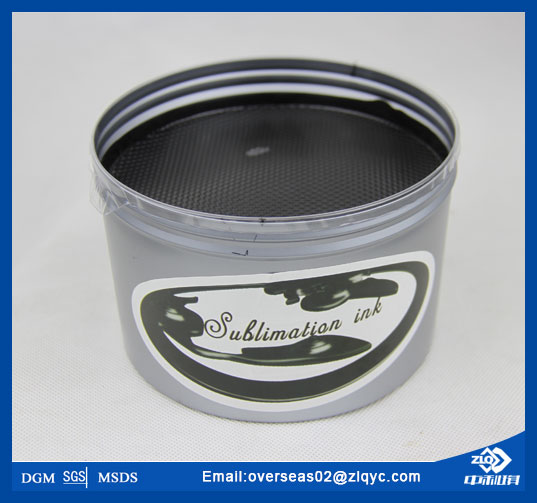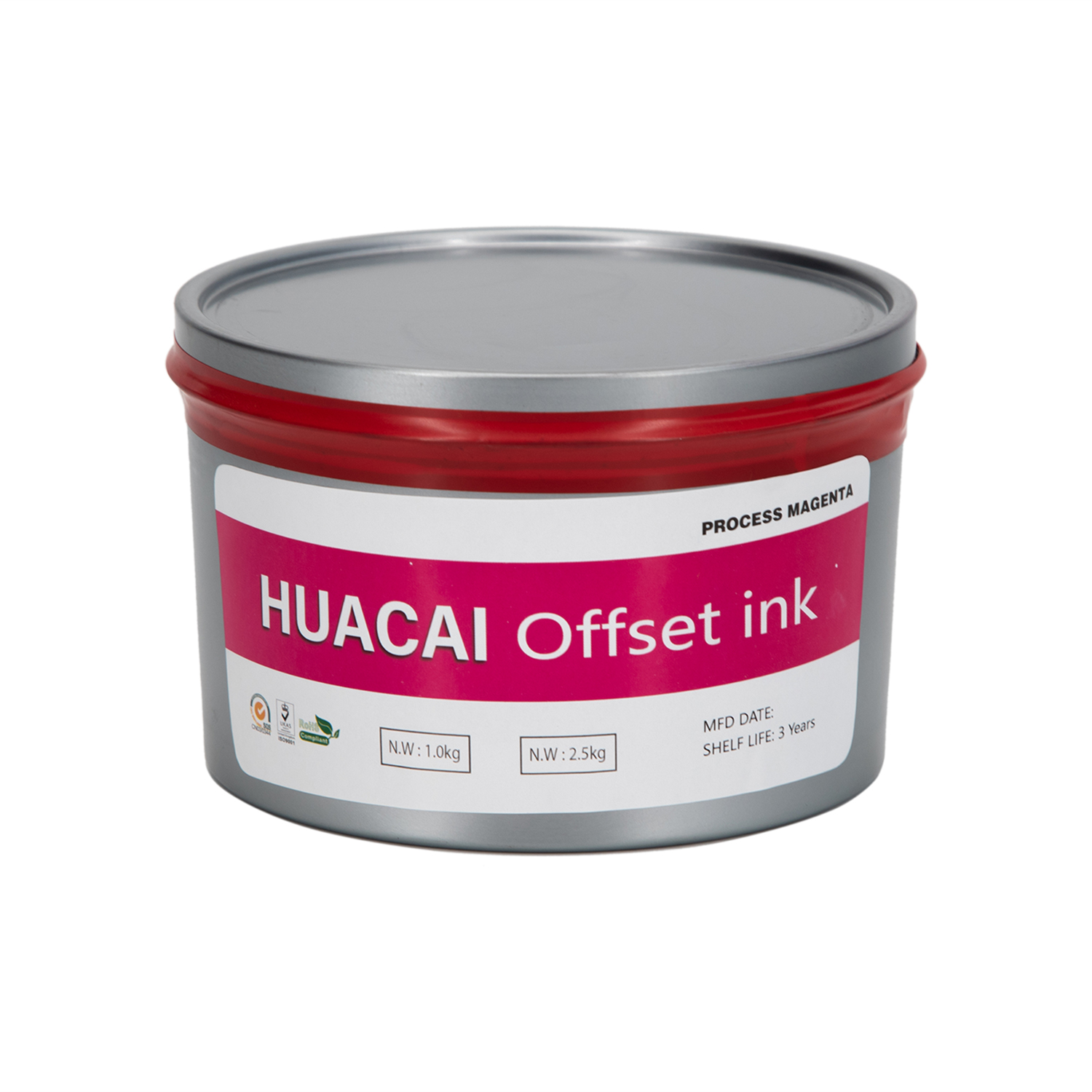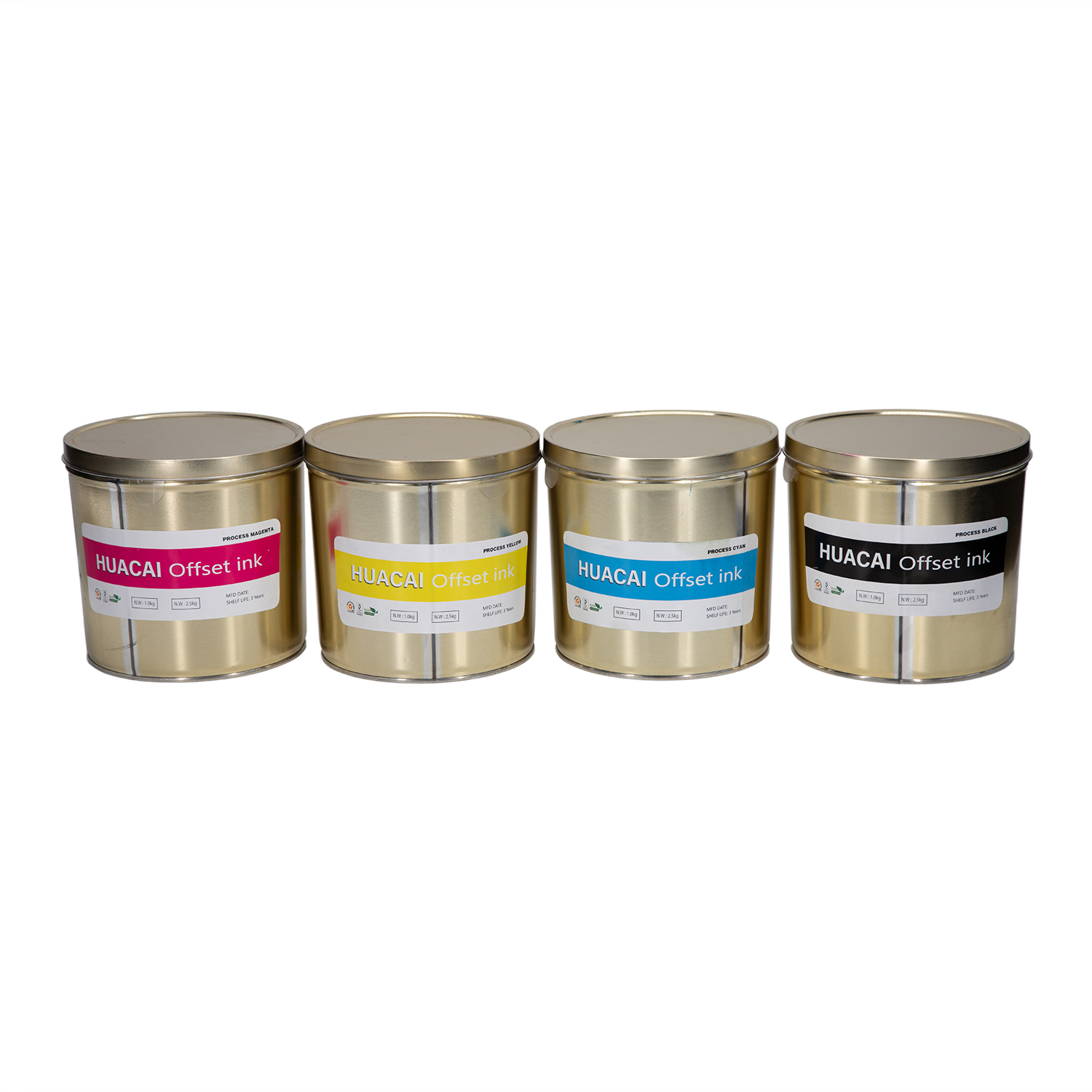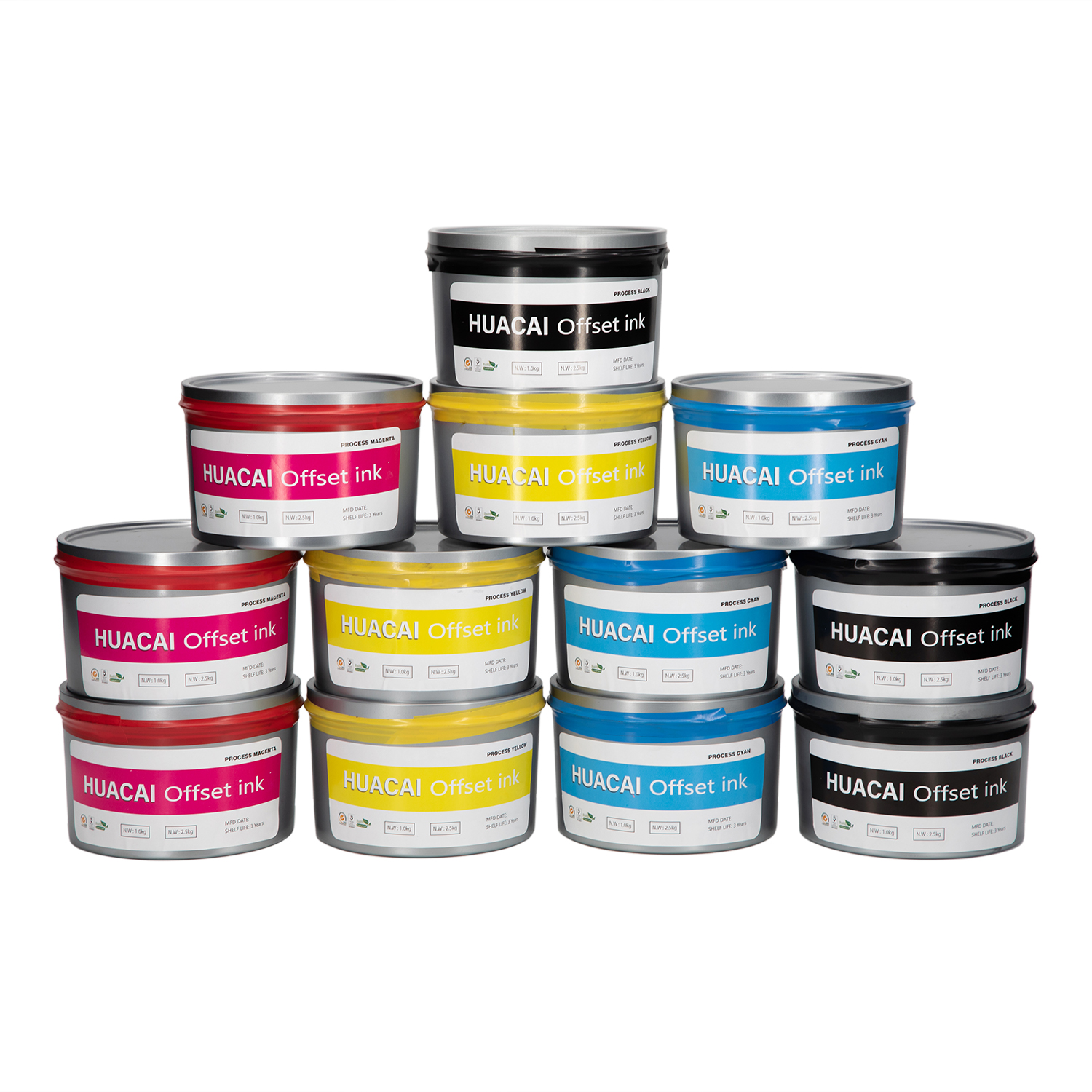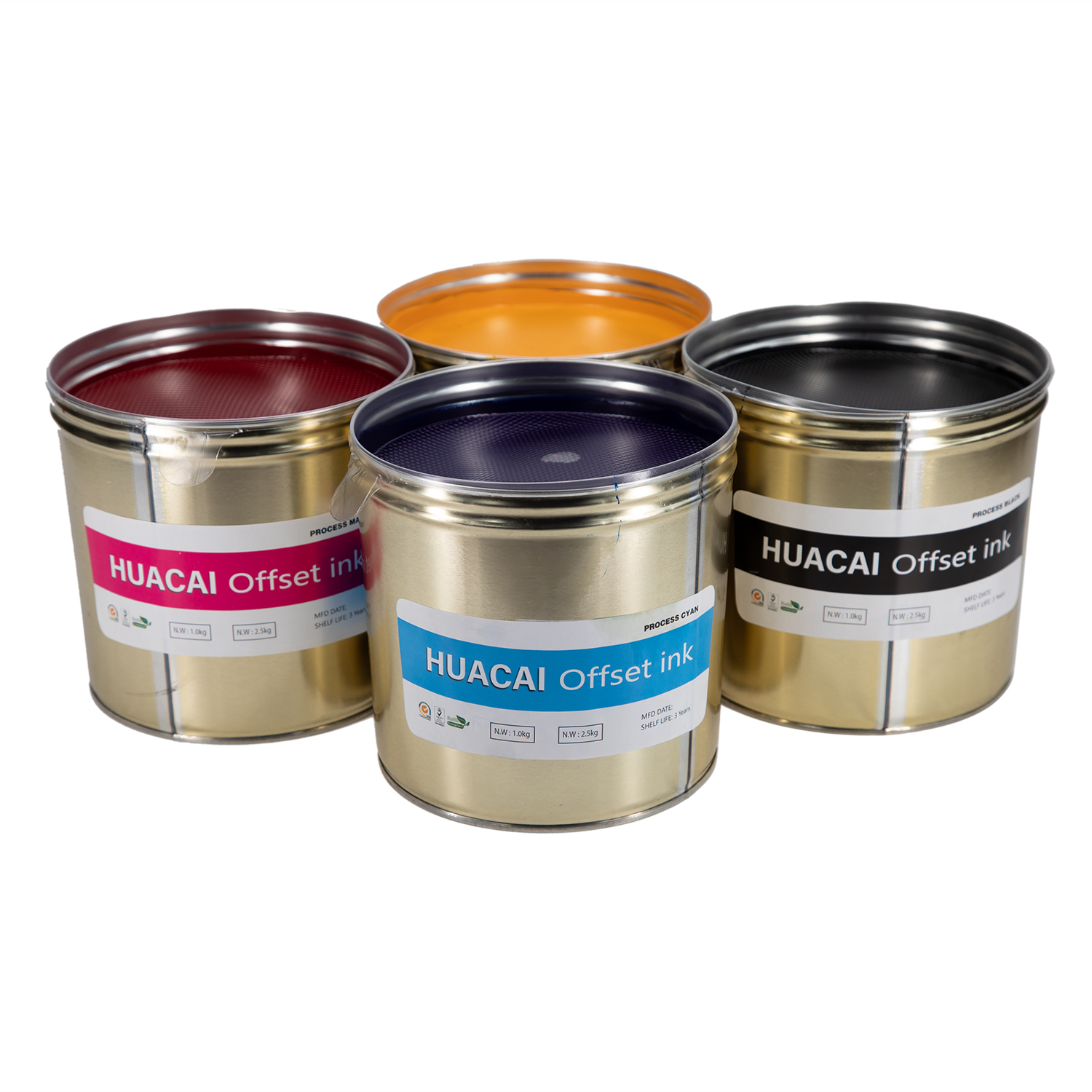Sublimation Offset Ink for Transfer Printing (SH-A)
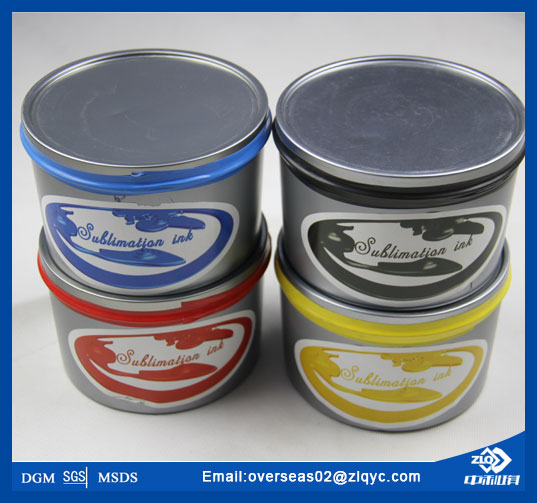
sublimation offset ink for transfer printing Technology:
For our ink, first printed the ink into the transfer paper, then transfer the ink from transfer paper into the fabric (under 180-220 degree).
It is based on the sublimation characteristic, according to the requirements of the various design pattern, use the offset machine first
transfer the ink into the transfer paper. Then make the transfer paper (with the pattern) contact with the fabric, under the certain temperature,
pressure and transfer time, the ink will become gas and goes into the fabrics from the transfer paper (such as sports, non-woven bags,
garments, handicrafts, add layer metal, ect.).
1. Use Principle
It is used on all kinds of offset machine. With the ink,first print image on paper, then transfer the image onto various materials by heat
transfer press, especially for polyester fabric. Under high temperature, the ink will become gas and go into fabric.
2. Use Scope
Offset (one color, two color and four color machines)
3. Use Method
(1)able to adapt to the demand for middle-speed or high-speed printing.
(2)During the normal condition, use the ink on the machine directly.
4. The printing process just needs 3 steps
(1)Print the image on paper, and normal paper is ok.
(2)Put the printed paper on substrate, such as polyester and nylon fabric.
(3)Put the paper and fabric on the heat-transfer machine. When the temperature reaches 180-220°C, the image will be transfer printed
from paper onto the substrate.
5. Suitable Fabrics
Polyester fabric, Triacetate fabric, Nylon fabric, Acrylic fabric, Polypropylene nitrile.
6. Transfer Paper
Coated paper, offset paper,chrome paper and calendered paper.
Transfer paper should be 80-90 gr/m2 with dimensional stability.
7. Colors
Magenta, Yellow, Cyan, Black.
8. Advantage
(1)Good stability on the machine,clear dot reproduction,excellent ink-water balance.
(2)Be able to adapt to the demand for middle-speed or high-speed printing.
(3)During the normal condition, use the ink on the machine directly.
9. Product Characteristics
* No Crust
a.Granula size is less than 5 micron.
b.No crust in 7 days at normal temperature.
* Safety
Passed SGS,DGM,MSDS,totally environment-friendly!
* Advantage
Good stability on the machine,clear dot reproduction,excellent ink-water balance.
Be able to adapt to the demand for middle-speed or high-speed printing.
During the normal condition, use the ink on the machine directly.
*P.S. please make samples before the final printing to confirm the exactly image.
10. Notice
Since sublimation ink belongs to gas shading, then the colour showing on paper and the colour showing on fabric are different. So when
we make PS-plate, the CMYK ratio is different from normal offset plate making.For example:
a. To get 50%C on fabric, the color on paper should be 30%C;
b. To make red PS-plate, the ratio is 100%M and 35%-40%Y;
c. To make blue PS-plate, the ratio is 100%C and 20%M;
d. To make green PS-plate, the ratio is 80%C and 90%Y;
e. If we want to get yellow like Asian skin, the ratio is 10%~11%M, 7%~8%Y and a little cyan.Cyan can be adjusted acooding to the
requirement.
11. Transfer temparature
About 185~220°C
12.Transfer time
About 20~40 seconds
The following is the transfer printing parameters for your reference
|
Name of fabric
|
Transfer temperature
|
pressure
|
Time
|
|
Polyester fabric
|
205°C~220°C
|
0.5kg/cm2
|
10~30 seconds
|
|
Polyester deformation fabric low elastic
|
195°C~205°C
|
0.5kg/cm2
|
30 seconds
|
|
Triacetate fabrics
|
190°C~200°C
|
0.5kg/cm2
|
30~40 seconds
|
|
Nylon fabric
|
195°C~205°C
|
0.5kg/cm2
|
30~40 seconds
|
|
Acrylic fabric
|
200°C~210°C
|
0.5kg/cm2
|
30 seconds
|
|
Two acetate fiber fabric
|
185°C
|
0.5kg/cm2
|
15~20 seconds
|
|
Polypropylene nitrile
|
190°C~220°C
|
0.5kg/cm2
|
10~15 seconds
|
Dye degree:(European Standard)
|
Color fastness
|
|
Color
|
Magenta(HPA604)
|
Yellow(HPA204)
|
Blue(HPA404)
|
Black(HPA804)
|
|
Rank
|
5-6
|
6
|
4
|
4
|
Please be noted
The control of the colors is always carried out after the transfer of the final supports.The relationship between the temperature and
the time of contact is important in order to havethe optimal color resistance and ink penetration (the longer the time of transfer, the
better the ink penetration of the fabric).
Packing
1kg/tin,12kg/carton.carton inside,wooden outside.



